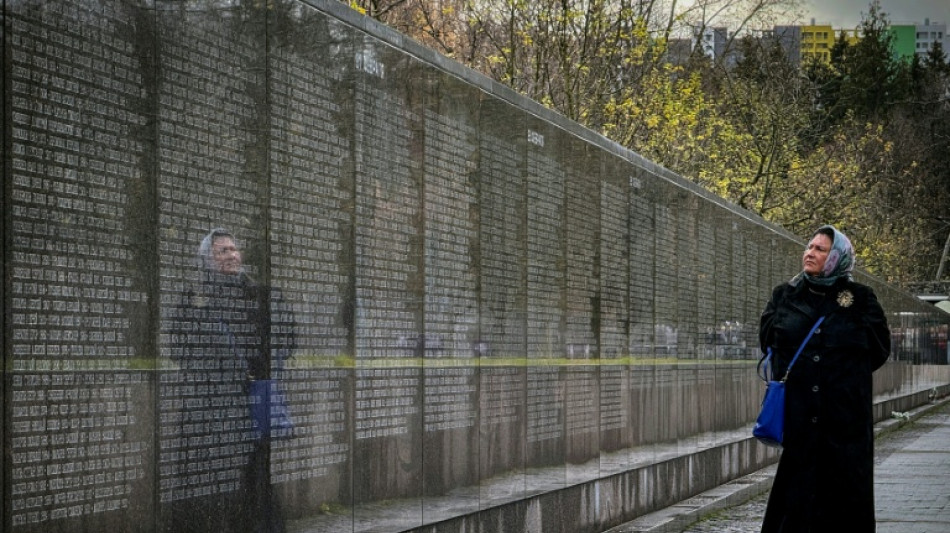

Russians marking Stalin's repression warn against return to past
Russians marking an annual day of remembrance for victims of Joseph Stalin's repression warned Thursday that history could "repeat itself" and criticised attempts to rehabilitate the Soviet leader's legacy.
Stalin, who ruled the Soviet Union from 1924 until his death in 1953, presided over a totalitarian state that executed and imprisoned millions of people that he deemed political enemies.
His legacy is controversial among Russians, some of whom glorify him for leading the USSR to victory in World War II while others deplore him as a murderous tyrant.
At the Butovo firing range, a Stalin-era execution site near Moscow that has become a shrine to his victims, visiting Russians warned against venerating the wartime leader or emulating his ideas.
"This is our history. We must know it, and we must learn from it," said Kristina, a 49-year-old landscape gardener whose great-grandfather was executed at the site.
"It is our duty to preserve and pass it on to future generations," she said.
Another visitor, who asked to remain anonymous, called attempts to whitewash the Soviet leader's image "terrifying".
Russia ordered the closure of the Memorial human rights organisation that documented Stalin-era atrocities in 2021, forcing it largely into exile, while the capital's Gulag museum that showcased the history of Stalin-era prisons closed last year.
"Monuments to Stalin are being erected all over the country," the woman said.
"The fact that this place remains is truly a miracle."
- 'Many warning signs' -
While Russian President Vladimir Putin has described Stalin as a "complex figure", he and other officials have increasingly evoked his defeat of Nazi Germany in World War II to rally Russians around the Ukraine offensive.
Authorities have meanwhile launched a crackdown on dissent at home that critics say carries echoes of the Soviet era -- even though it is a far cry from the calamitous bloodshed perpetrated by Stalin.
Some in Butovo were worried about a return to large-scale repression.
"I think there are many warning signs," said 44-year-old Olga, a nurse who came to visit the memorial.
Tamara Shishkova, a 61-year-old retired schoolteacher who also came to the memorial, said repression reminiscent of the Stalin era "could happen again at any time".
"Everyone lives materialistically in their own apartment, thinking only of today," she said, adding that some people were telling themselves that "everything is fine".
Around 20,000 people were executed at Butovo between 1937 and 1938, hundreds of whom are memorialised on a commemorative wall in the complex.
Lidia, a 58-year-old historian, said she came to pay tribute to her great-grandfather who was killed there.
She said "no investigation was conducted" into the murders or perpetrators.
"It's been so long since anyone can be punished, but at least they need to say who did it," she told AFP.
Russia's Supreme Court in 2021 upheld a Yeltsin-era presidential decree that kept information about Soviet security police secret, preventing potential exposure of those responsible for executions.
While Putin has condemned Soviet-era crimes, authorities typically downplay them and the victims of repression are often given short shrift in history textbooks.
"To prevent this from happening again, we need to bring this matter to an end," Lidia said.
M.F.Schmitz--JdB



